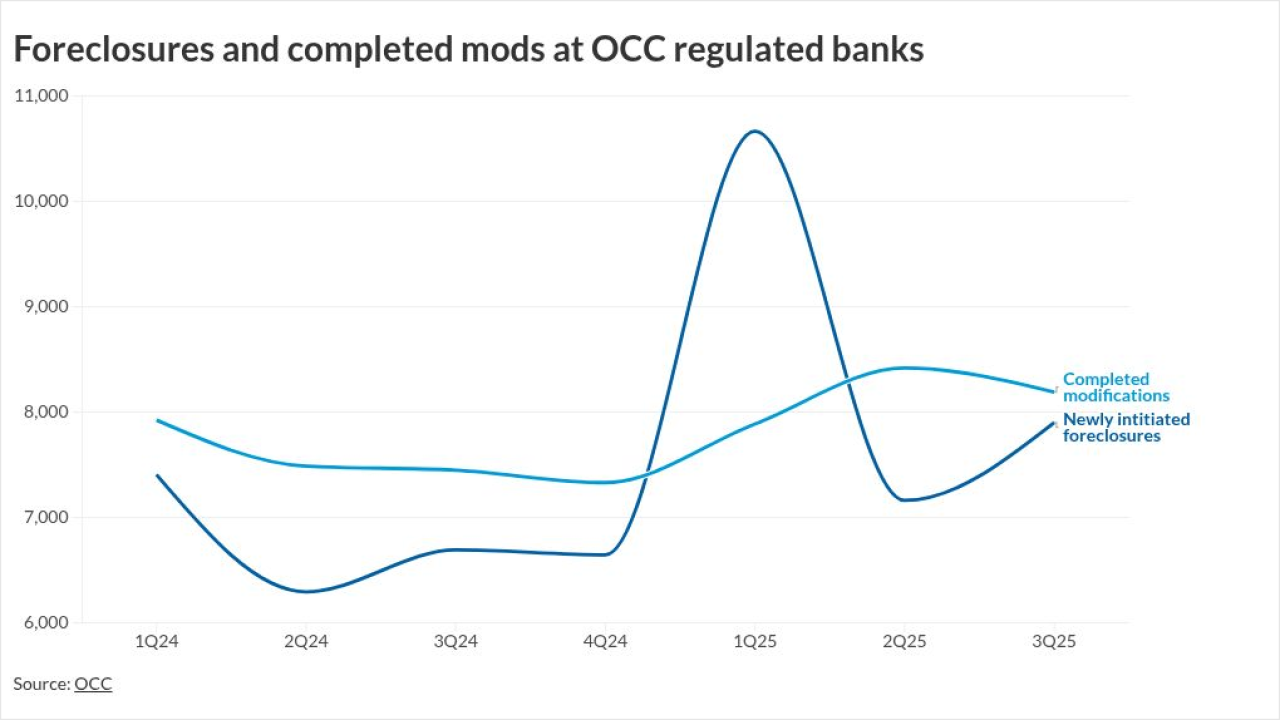Approximately 60% of commissioned mortgage professionals claim to be living paycheck to paycheck because of delays in payment in the midst of
A 84.4% share of respondents, who held a variety of roles besides loan officers, felt getting paid faster would enable them to manage their personal finances more effectively.
"When you look at
Ross added the findings that 60% are living paycheck to paycheck was a surprise, but noted that mortgage industry workers are not immune to the pressure others are feeling, where nearly three out of four are dealing with a personal financial crunch between pay periods.
Bill Corbet, partner and managing director lending strategy at BlackFin Group, agreed with this sentiment.
"This is certainly exasperated by the lag between their sale and closing, which triggers the standard (delayed) pay cycles," Corbet said in a statement. "Faster pay cycles clearly help the loan officer but the customer may also benefit in that the LO is not pushing to close just to meet a cut-off date for getting paid."
Because
"So once that deal closes, they want their commission within a day versus having to wait another two weeks, sometimes even upwards of 45-plus days," added Dana Gagnon, Everee's chief marketing officer. "It's not really acceptable anymore."
And while
"So if you're a mortgage professional, you're having to start to think, is this going to get worse, should I be thinking about staying in the profession and if I'm going to stay in the profession, what would it take me to stick around?" Ross said. "We're seeing them appreciate more predictability and quicker payments when they're owed that money."
While more than half responded that they were not planning on leaving the mortgage industry in the next 12 months, 32% answered the question in the affirmative and 15% said they didn't know.
For those considering dropping out of the business, 56% stated the uncertainty of the market affects their decision on whether to stay or go.
The fundamental problem is that the mortgage industry still has
"Our data over the years has shown that the bottom quintile of loan officers have a turnover of roughly 100%," Cameron said. "So basically, the bottom dwellers rotate out every year."
But with volume dropping by half year-over-year, more of that group is likely to consider a change, and that is shown in the response to the stay or go question, he said.
The declining number of transactions has resulted in a 48% decline in commissions, Stratmor's data found.
Over eight in 10 of respondents to the Everee survey, 82%, claimed they would remain at their current lender long-term if they were paid commissions within 24 hours. However, more than 60% stated they had to wait at least two weeks to get paid, with 22.3% claiming it took a month and 11.5% reported it was even longer.
However, loan officer compensation in particular has long been a hot button topic in the mortgage industry, with a panel at last October's Mortgage Bankers Association annual convention
On the other hand, with all the turmoil, especially with mass layoffs and company closures,
In choosing a place to work, the commission rate was No. 1 among the factors respondents were asked to rate, which was no surprise given their desire for predictability and the size of their earnings, said Gagnon.
The next two were having flexible working hours and
"Like with the rest of the American workforce, there's that push to return to office and mortgage professionals are in that same boat," Gagnon said. However, "they still want the flexibility that they were afforded during the pandemic."
Fourth was company leadership, followed by speed of commission payments, the consistency of business and company culture.
In the bottom two positions on the list were health and retirement benefits.
Everee surveyed 314 mortgage workers compensated on a commission basis during May. Managers made up 35% of the sample, with 27% being LOs, 18% loan processors, 8% underwriters and 12% holding some other role. Just over half of the respondents have been in the mortgage business for five years or longer.




